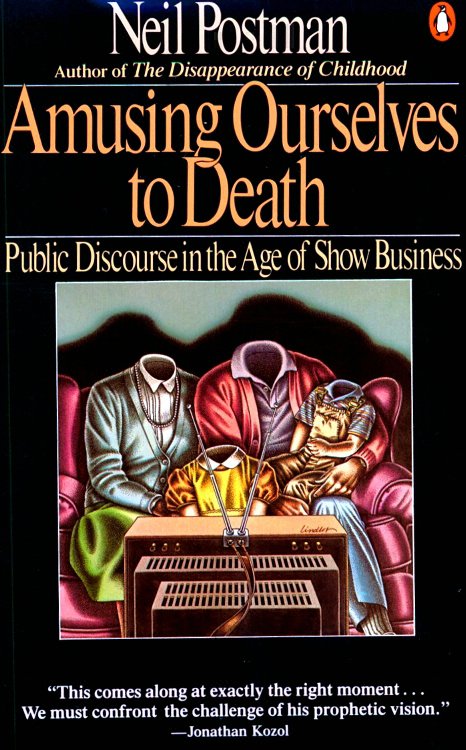Richard Maxwell (ed.): Culture Works: The Political Economy of Culture (2001)
Filed under book | Tags: · culture, economics, political economy, politics, popular culture

Tears down the imaginary walls separating culture, economics, and politics.
When we read best-selling books, go to movies, visit art museums, go dancing, take in a game, we customarily ignore the political economy that hammers these features of culture into shape; normally, at such times, we’re not thinking about corporate board room votes, lobbyists, public funding for the arts, the end of the Cold War, stock swaps, intellectual property, or the class divisions of public space. This book aims to change that by offering readers a number of ways to link cultural experience to political economy—to become aware of the ways in which political and economic realities and decisions determine the outlines of spaces and activities in everyday life.
Unsettling and provocative, Culture Works tears down the imaginary walls separating culture, economics, and politics. Writing across the established borders between anthropology, sociology, art history, economics, communication and media studies, political theory, and performance, the authors seek to show how particular economies and power relations work in familiar and central cultural experiences: art, beer, advertising, dance, sport, shopping, the Web, and media. Their essays provide a series of lucid, critical accounts of various aspects of the political economy of culture and its attendant issues of production, consumption, corporatization, and the struggle for meaning. A refreshing example of a politics of writing and critical thinking that cultural studies and political economic analysis can produce when working together, the result will change the ways in which readers experience, consider, and understand culture works.
Contributors: David L. Andrews, Michael Curtin, Susan G. Davis, Danielle Fox, Chad Raphael, Anna Beatrice Scott, Ben Scott, Inger L. Stole, Thomas Streeter.
Publisher U of Minnesota Press, 2001
ISBN 081663601X, 9780816636013
Length 259 pages
More info (publisher)
More info (google books)
Neil Postman: Amusing Ourselves to Death: Public Discourse in the Age of Show Business (1985)
Filed under book | Tags: · culture, entertainment, mass media, media ecology, show business, social criticism, sociology, television

The book originated with Postman’s delivering a talk to the Frankfurt Book Fair in 1984. He was participating in a panel on Orwell’s 1984 and the contemporary world. In the introduction to his book Postman said that reality was reflected more by Aldous Huxley’s Brave New World where the public was oppressed by pleasure than Orwell’s 1984 where they were oppressed by pain.
Television has conditioned us to tolerate visually entertaining material measured out in spoonfuls of time, to the detriment of rational public discourse and reasoned public affairs. Neil Postman alerts us to the real and present dangers of this state of affairs, and offers compelling suggestions as to how to withstand the media onslaught. Before we hand over politics, education, religion, and journalism to the show business demands of the television age, we must recognize the ways in which the media shape our lives and the ways we can, in turn, shape them to serve out highest goals.
Publisher Penguin Books, 1985
ISBN 0140094385, 9780140094381
Length 184 pages
More info (wikipedia)
More info (publisher)
More info (google books)
Luc Boltanski, Laurent Thévenot: On Justification: Economies of Worth (1991/2006)
Filed under book | Tags: · critique, philosophy, relativism, sociology

A vital and underappreciated dimension of social interaction is the way individuals justify their actions to others, instinctively drawing on their experience to appeal to principles they hope will command respect. Individuals, however, often misread situations, and many disagreements can be explained by people appealing, knowingly and unknowingly, to different principles. On Justification is the first English translation of Luc Boltanski and Laurent Thévenot’s ambitious theoretical examination of these phenomena, a book that has already had a huge impact on French sociology and is likely to have a similar influence in the English-speaking world.
In this foundational work of post-Bourdieu sociology, the authors examine a wide range of situations where people justify their actions. The authors argue that justifications fall into six main logics exemplified by six authors: civic (Rousseau), market (Adam Smith), industrial (Saint-Simon), domestic (Bossuet), inspiration (Augustine), and fame (Hobbes). The authors show how these justifications conflict, as people compete to legitimize their views of a situation.
On Justification is likely to spark important debates across the social sciences.
Keywords and phrases
political philosophy, civic world, Saint-Simon, world of fame, Durkheim, city of God, relativism, Social Contract, market world, Rousseau, domestic world, However, different worlds, higher common principle, inspired world, sociology, Jansenist, cial, Aristotle, metaphysics
Originally published in French as De la Justification: Les Economies de la Grandeur by Editions Gallimard, Paris, 1991
Translated by Catherine Porter
Publisher Princeton University Press, 2006
ISBN 0691125163, 9780691125169
389 pages
PDF (no OCR; updated on 2012-10-31)
Comment (0)
